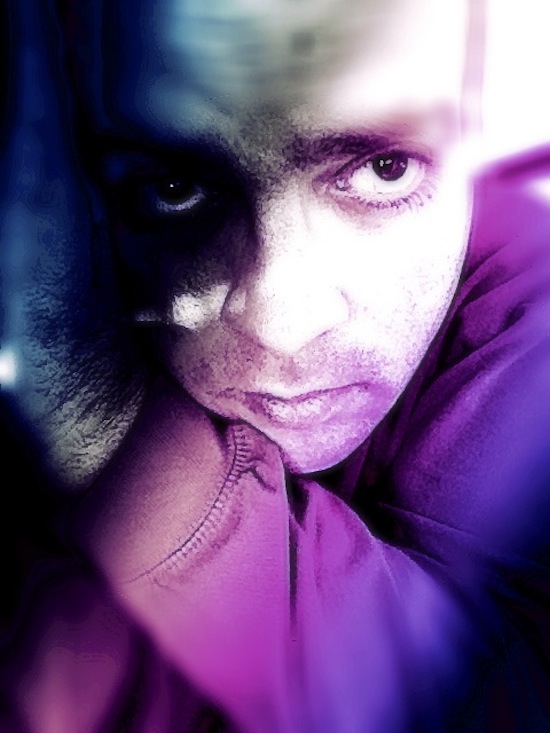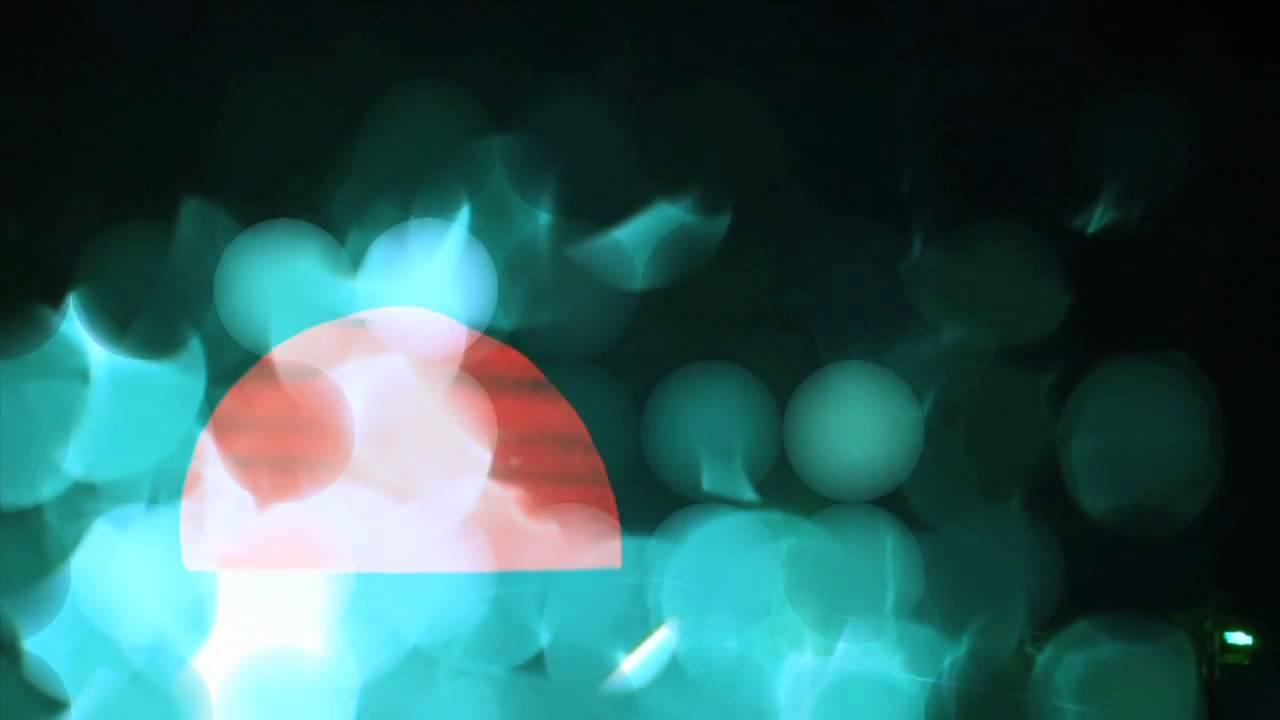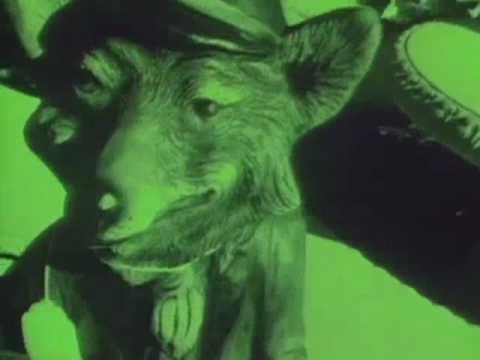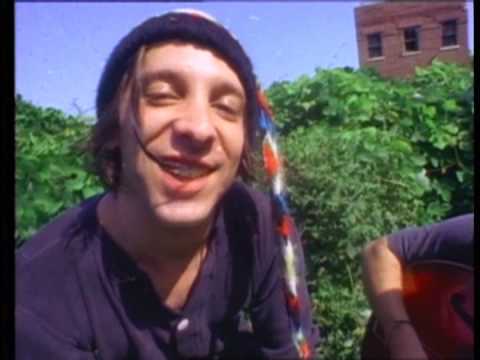“I wasn’t in a deep freeze, living in my mother’s basement.” David Baker is on the phone from Chicago, trying to explain his absence from music for nearly two decades.
When Mercury Rev broke through internationally with 1998’s Deserter’s Songs, Baker was the ghost at the feast, the group’s own Banquo. He’d been a founder of the group (originally Shady Crady) in Buffalo, NY, fronting the band’s first two, heavy psychedelic albums Yerself Is Steam (1991) and Boces (1993). Although global acclaim lay some years ahead, this initial incarnation of Mercury Rev was an immediate hit in Europe, finding allies with the UK’s emerging shoegaze groups.
Baker and Mercury Rev parted company after the release of Boces. As Shady, Baker pulled in a 50-strong line-up of musicians (including members of The Boo Radleys, Rollerskate Skinny, Seam, Sharkboy, Swervedriver and Th’ Faith Healers) to record World (1994), while Mercury Rev managed one more cult album, See You On The Other Side (1995), before re-grouping.
Moving to Chicago, occasional production or engineering credits were the only evidence the wider world had of Baker’s continued existence, until his surprise return last year with Central Flow, the first album release from his current band Variety Lights. Recorded with synthesiser enthusiast Will MacLean, Central Flow sets Baker’s hazy songwriting amongst drifting patterns of analogue keyboards, heavy beats and treated guitars.
Variety Lights recently toured the UK with Pere Ubu. While Baker was selling merch at the Brighton show, we started chatting. I called him up for an interview a few weeks later, during which he cheerfully, if cautiously, cleared up some of the mysteries surrounding his exit from Mercury Rev and his activities since that lone Shady album.
When did you start Variety Lights?
David Baker: I’d named the band almost 15 years ago. I was always intending on doing more music, I had one band with like seven people and it was a whole big to-do. We just never put out the recordings and we never even actually played a show. Then when we finally gave up on the idea that we were ever gonna tour, this thing came together. What it’s based on is Will and I both loving the old school synths. I’ve always liked that stuff since I was a little kid and I was playing really cheap keyboards in the early forms of what became Mercury Rev. I used to like a lot of soul or funk, and with soul musicians and on dance records you’d hear crazy synths. Or on the New Wave stuff, like that ‘Ghosts’ song by Japan, where they would have a top ten hit and it’s all kind of weird sounds. Even Tears For Fears or Depeche Mode: a huge pop thing right from the beginning in England, but for us here, Depeche Mode was an underground band. I had this idea of seeing if you could go into the same sound exploration that I used to like that Jonathan (Donahue)and Sean (Grasshopper) did with guitars and pedals. I was trying to say, what if you had you didn’t have so much division between the dance records, and maybe the Goth records, or whatever became shoegaze. What it you could have it all mixed up together?
I don’t think a lot of people know this, but at one point I had this idea for Mercury Rev before I left, that we were going to do a Prodigy/Mercury Rev collaboration. We actually went to meet them and they were like, “But you’re rock.” And I was, I’m not Jerry Garcia but yeah, we’re rock and we thought it would be really cool to have your beats and our guitars. So I always liked the idea to have this dancey electronic stuff but to mix it with things that you’re not supposed to, and maybe not have to have the beat all the time. So does that equal the record that came out? Maybe not, but what I was doing was having fun with it exploring the sounds. Will is really into all kinds of keyboards, so he had a bunch and I have some and we just we got together a couple of nights a week and started fooling around. Fire Records had contacted me about five years ago, I wanted to finally get something out there and they said, “Oh, well this thing seems to be working out.”
How long did it take to record Central Flow?
DB: Do you know who Peter Brown is? He made (disco hit) ‘Do Ya Wanna Get Funky With Me?’ and he also wrote Madonna’s ‘Material Girl’. Somebody at a job I had knew him well and they said he’s trying to get rid of a studio, the studio he wrote ‘Material Girl’ in. So me and a couple of friends had this house that we lived in, and we went over and bought his studio for really not much money. It had all these keyboards from like 1980, 1981, connected by MIDI. I used to hear about people like Howard Jones doing keyboard music and I’d think, well how do you do it? Nobody taught me, so here’s all the stuff, let’s see how to connect it. Some of the wires are from like 1980 and they’re crumbling, and some of the machines aren’t working, and on some of the discs I think we have sounds from Madonna’s song, so it’s like an archaeological dig, pulling things out and putting them together.
With Will it was a little bit easier because we would take the keyboards and link them round them room. It was an experiment, there’s the MIDI, let’s see how many we can connect, see if there’s a ghost in the machine that comes out. So some of it’s from back then and some of it’s more recent but we weren’t trying to make an album. It revealed itself. Maybe I had to do some vocal overdubs and some mixing and mastering and that kind of thing but I didn’t say, here we’ve got six weeks, let’s make an album. We were just feeling good about doing stuff.
Who’s in the touring line-up of Variety Lights? I saw you had Adam Franklin of Swervedriver with you.
DB: I have a bass player and a drummer that like to be indentified as Chaeston. One of them’s named Chaetan (Newell), the other one’s named Weston (Broske) but I started putting both their names together. They’re some young guys I know from the Chicago area. Will didn’t come, he works and he has a family and a child and that’s his big priority now. I think that Will and I are not going to be doing the next recording and Variety Lights will be a different group of people, probably the band you saw, and hopefully Adam, knock on wood.
Adam was on the Shady album too. Why did you use so many musicians on it?
DB: Yeah, there was 50 people on that album. With Mercury Rev we had a lot of attention, not just from journalists but from bands who knew who we were, so we would tour and I kept making friends with people. As soon as I left Mercury Rev I said, well I’ve got all these friends, why don’t I just go visit them and we’ll record. That’s how the Shady record was made, I went to Memphis and made friends there, Dublin, London. People would come to the studio and we would record. I think Variety Lights is like a continuation of that project, I just couldn’t call it Shady anymore because of Marshall Mathers calling himself Slim Shady. Also it was a dark thing, you know, and my life has been a little bit less dark since. There’s more variety and colours and lights, so let’s call it Variety Lights. I like the idea that it would be a continuation of the Shady thing, which is me writing songs or collaborating or whatever I decide. If somebody wants to take Variety Lights’ name too, they’ve already got a (Fellini) movie to contend with.
I guess the Marshall Mathers thing ruins Shady’s internet searches, which is something you didn’t have to contend with 20 years ago.
DB: Oh, everything’s so different. I was thinking about how you toured way back. I’m still trying to figure out how we knew where to go. Faxing was a big part of stuff, we had a fax machine, but now you can just go with a phone, you know where you’re at and can communicate with people. 20 years ago there was a huge mystery. It was definitely a really cool experience to go, but you had no idea what was going to happen, who all these people are that might show up. Then people would just go away. I’d try to take pictures with my camera and I’d go, who is that person? I’d have no idea. Now I know all the people that I met, because they’re emailing or Twittering. When you see a band, everybody knows exactly what context they’re in, what instruments they’re playing, what their set-list was the night before, because somebody grabbed it. It’s like the DNA is right there, up on a chart.
From a British perspective there was a lot of mystery to Mercury Rev’s background early on. Was that something you could thrive on creatively?
DB: That’s right. We were in Buffalo, sitting there thinking, there’s no hope of us being a band, we’re not going to be Guns N’Roses. What we did wasn’t considered real, because it wasn’t being covered by Spin or Rolling Stone, so we could just be whatever we wanted to be. We’d take the microphone and record pots and pans or guitar and make our own little world. I mean, we knew the context, we knew who Bowie was, we knew who all the bands were, but we didn’t put them with us. We were just making music. It was, “Us? Are we in a band?” Well, none of us live in the same town, we just meet in the studio and have a great time together doing stuff. When I met Dave Fridmann, he was just a student at a school doing these projects. I said, “Can I scream through this amp?” And he said yeah, and so I said, thank you, because all these years before, if I wanted to go to a guitar shop people would say, you can’t do that because Van Halen wouldn’t do that.
Then we got over to England, where there was all this stuff happening involving us but we were still in the dark about it. We were going, “Wait, you’re actually paying to get in to see us? But we were doing this in our basement.” Our fifth show we played in front of, I dunno, Reading (Festival). We’re sitting there and just doing our thing, it’s still a big fantasy world. An interviewer would say, “What are you doing?” And we’d say, “We’re over here and having a good time and experimenting and finding things.” You know, “That’s not a very direct answer!” It’s maybe like twins that talk in their own language, and then all of a sudden you have to speak the regular language. Then perhaps some of the people in the band were like, well there’s a proper way to do this. They probably turned the lights on and learned how to speak intelligently and they lost some of the mystery. I’m not trying to say I’m not included in that.

Before Mercury Rev came to England, you used to promote shows in Buffalo. Did it help to make connections with the bands you were putting on?
DB: Oh no, that stuff didn’t help us at all! I mean, it helped to know that there were real bands and real humans doing things, but I did a show for the Pixies and I would never have written to them saying, “Can we tour with you?” I was just a big fan. I guess one time later we did put ourselves on the bill with Sonic Youth, back when we were called Shady Crady. Sonic Youth knew who we were but it didn’t help us. What helped is that we sent our tape to Jungle Records in England and Graham (Combi) called me up and said “Do you tour in the US?” I said, “Oh yeah, sure!” So he said, “We’ll send somebody over from the Melody Maker to see a show” But we hadn’t even played a show then, so we had to make one up. It was near the school, not a club but a student hang-out. I guess Dave Fridmann said, “Can we put on a show here?” I think the only people there were the photographer and the writer and some others, but nobody really. So that writer came to America on Halloween and saw us play, he covered our very first show, and then went back and told people, “Hey, this band’s pretty good.” Chris Roberts, I think he was.
Yes, he writes for The Quietus too.
DB: Well say hello to him, he was a very nice guy. I would say his visit and Jungle’s agreement to put out our music was the whole deal. If that never happened , you’d never have heard of us. It wasn’t like we were a fraud, we put a lot into our recording, but like I said, it wasn’t a career we thought we were doing. We had these records we would listen to, and I can’t talk about those guys, but for me it felt like these records saved my life many times. Not like I was suicidal but you’d listen to somebody communicating with you on an album and you’d say, wow, there’s somebody in the world that feels a lot of things and knows how to articulate them. I know that most of the members of the band had a passion to want to make that sort of recording for ourselves, that we’d maybe do something that would be meaningful to somebody else.
And it was a success, way more than we expected. We touched a lot of people, and they still talk about both those albums, which is great. It’s meaningful for them. They try to dissect my lyrics, and I’ve never printed them, but they still are obsessed with it. I get people calling me and following me saying, “I don’t want to bother you but can you just tell me what the lyrics are to…” So that’s awesome. I’ve gone through a song with somebody and they’ll say, “What does that word mean?” Oh, you really want me to go through it? I mean, why don’t you listen? “Because I don’t understand what you’re saying, is it this word or that word? Because it makes a difference.” And it did make a difference to me too. I didn’t know if people made records that were meaningful to me because they really cared, David Bowie might just have wanted to be popular. I’m not gonna make a judgement about whether Bowie was being real or not, but to me it was real, so when I was making music I’d want to make something that really is emotional and passionate. All of us, whether we communicated well with each other or not, had that desire to make something that would communicate to the listener. Not a career thing but something like a love letter to them. More than a few of us were, let’s see, a little shy, and being able to actually communicate with the record was awesome.
Was this lack of communication a factor in your split with Mercury Rev? Did you leave or were you asked to leave?
DB: Well, they asked me, but I had been wanting to leave, to be happier. So it wasn’t like some big fall out. It’s a hard one to talk about, but we’re fine, [even if] we’re not making records together. Jonathan came to see Variety Lights and I’ve gone to see them when they play. They’ve invited me out and it would be like a reunion of people who got along, so we’ve buried any hatchet.
I said at the time that I kind of wished that they had not gone on as Mercury Rev. It was my dream to have that band, and Jonathan had the dream too, and each member of the band to varying degrees had the same kind of thing. So for it to keep going without me, I was upset, but at the same time I was also doing things myself and I was happy to be doing them. People think that there’s an animosity, but we had humour and we had an excitement to be doing what we were doing and this myth that we were trying to kill each other just didn’t happen. We had some great times recording and playing, having great experiences together, so it’s a shame that there’s this desire to look at it negatively.
I’m not trying to say that there wasn’t tension, there were tensions. I mean, we played the Royal Albert Hall, one of our most public gigs, and Jonathan decided to not tell me the set-list, so there was a little bit of a panic. And there’s also different kinds of demons I can’t talk about, things that people were dealing with, myself included. There might have been things that were not positive but I really don’t think that that’s the reason for the splitting up. I think that had to do more with, there’s a lot of people in the group. If you listen to Boces, the drummer wrote a song, the bass player wrote a song, Suzanne (Thorpe) is laying down flute stuff through effects that nobody’s done before. The Boces album is a group album, and it’s not like a group where you worked everything out and then recorded it. We built it together and it was stressful but that was a happy thing. But people wanted more, because if you have to go and tour with an album that you only contributed a little bit to you might want your own piece of the pie. I think that Jonathan had a vision, and he wanted to have more piece of the pie, I guess, and I did too. So that was why it was like, you can’t fire me, I quit. I don’t even like to say fire because I wasn’t fired. I like saying Fire because that’s the label that’s putting my record out.
Talking of which, what are your next plans for Variety Lights?
DB: Well there’s these 40 songs that I’m focussing on. It’s hard to predict which things will stay but I’ve put a lot of preparation in for recording. With Shady there were 50 musicians, but with Central Flow the rule was that it would only be either Will or myself playing on it. If I didn’t know how to do something I would have to learn it, so that’s why it took some time. I was moving in the direction of doing the next record all by myself, but we had a great time in England and I don’t think that this particular line-up was able to do enough. It really helped that we played together for these 11 British shows. That’s always the case – you play with your band, you get to know each other and then you want to record. I’m a huge fan of Adam’s. He’s still doing Bolts Of Melody and Swervedriver but the great thing is he’s said if it works out we’ll do more.
And I should probably figure out how to get back on the road, if anybody reading this wants to book us. I loved going on that tour, I kept meeting people who were fans from way back. I met a couple who said, “Our son is a grown man and he’s a fan of yours,” and they saw Mercury Rev play on, I guess, the Ride tour. So they were teenagers then, and now they have teenagers themselves. It was cool, because I didn’t intend it to be that long a period of time. I really didn’t think it was going to happen that way, but I had things in life I wanted to do so, here I am. I’m a brand new band.
Variety Lights’ Central Flow is available on Fire Records





